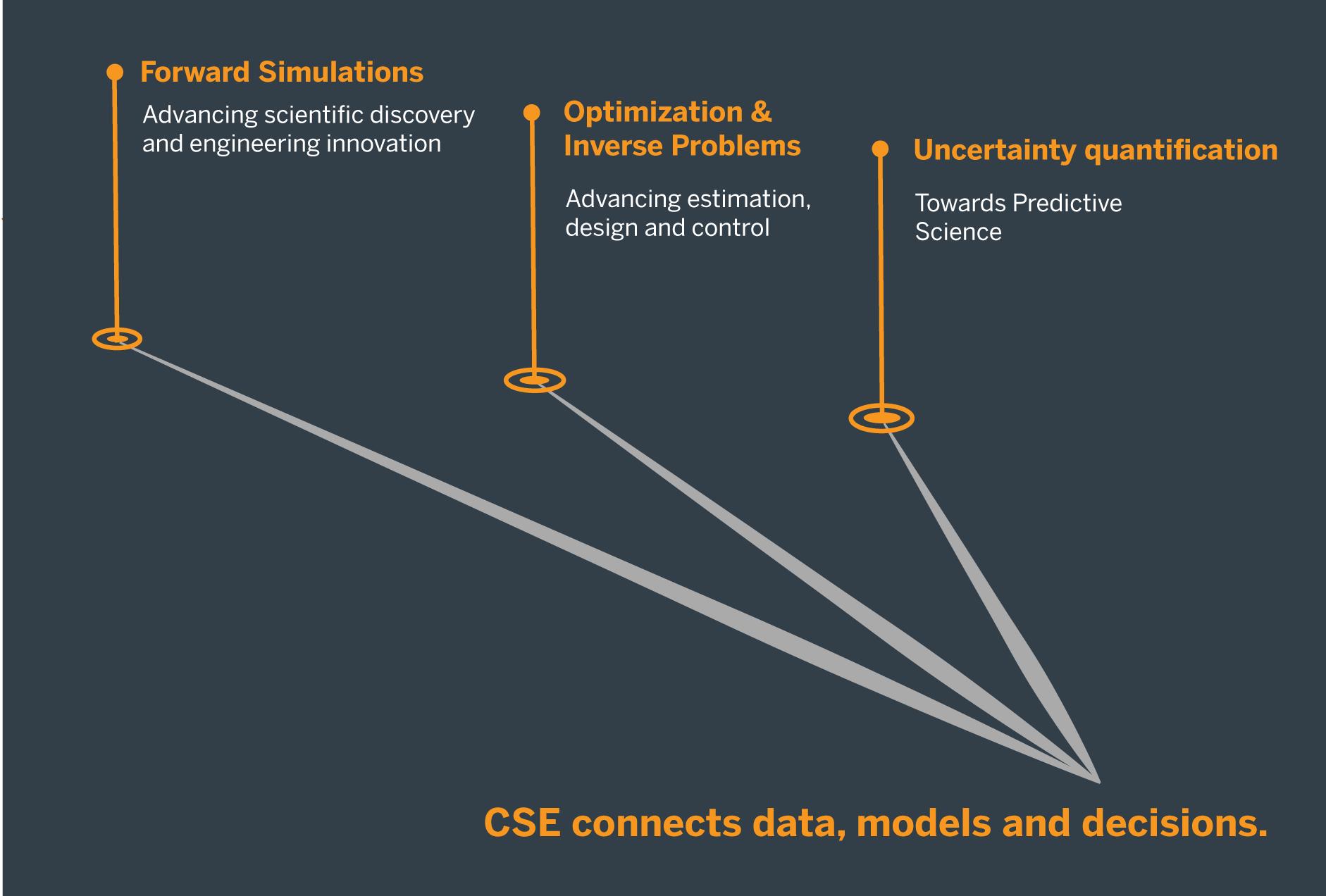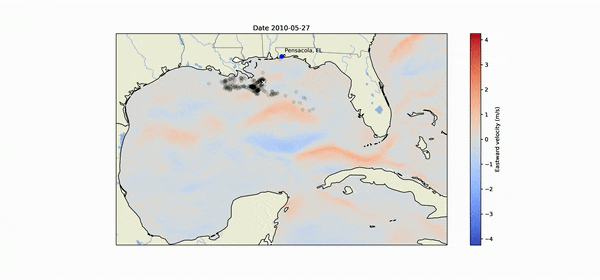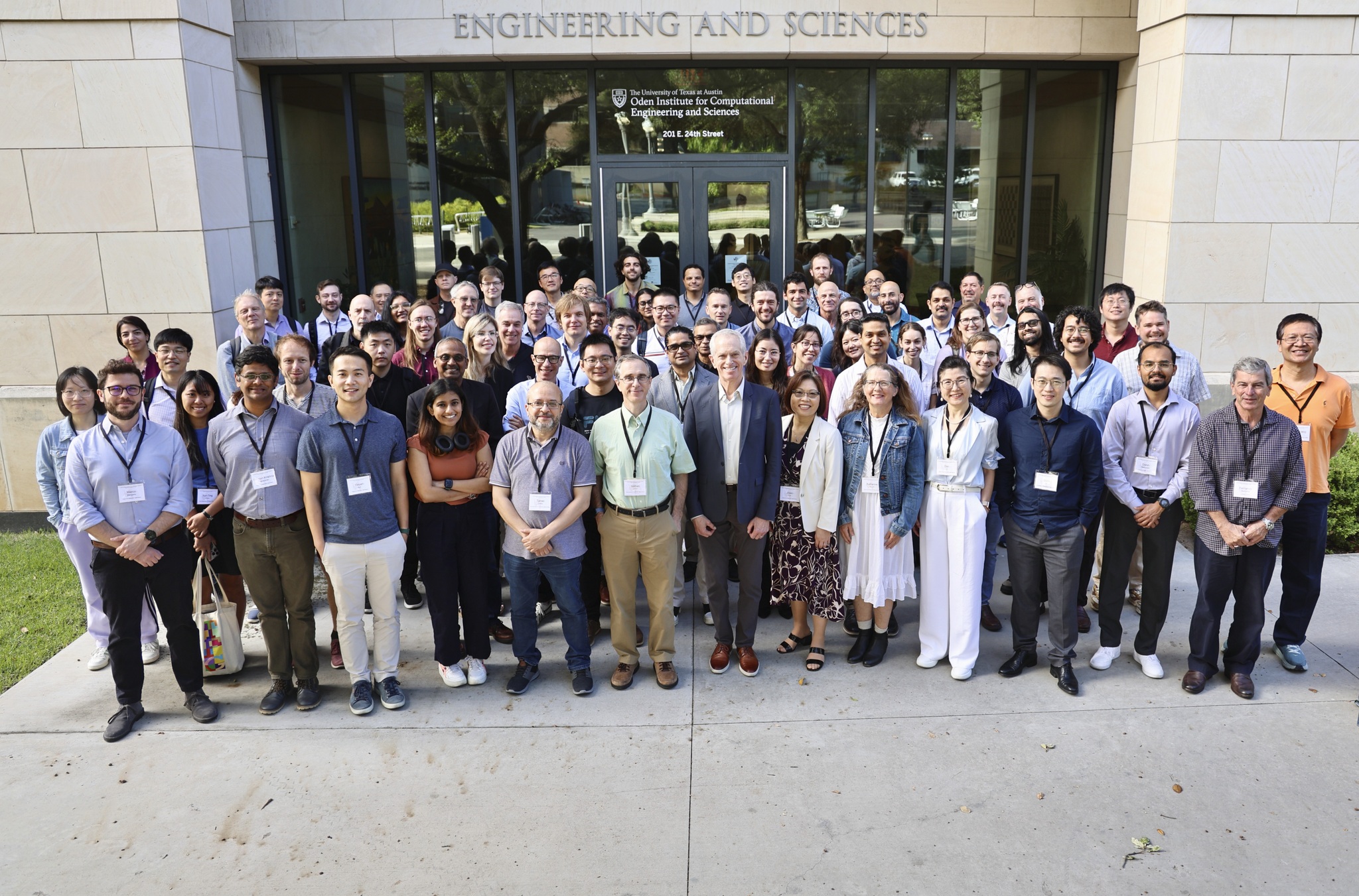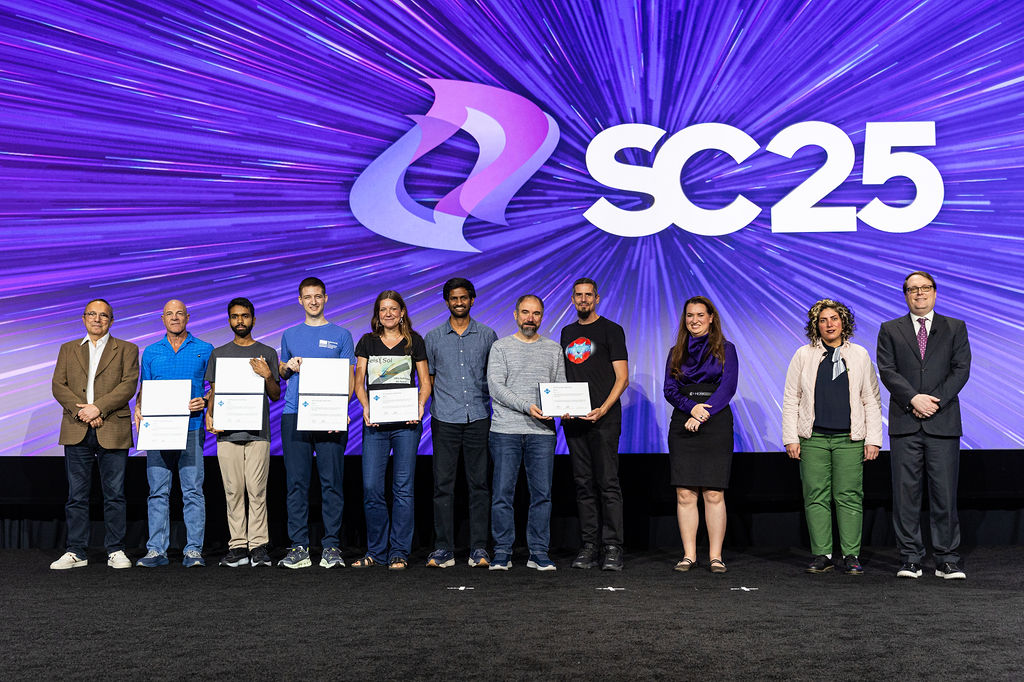Cross-
Cutting
Research Area

From forward simulation to the outer loop
Optimization, inversion and UQ are the key mathematical and computational tasks in what is often referred to as the “outer loop” (i.e., computational applications that form outer loops around a forward model).
Optimization A significant aspect of the field of CSE is the development of theory and methods for optimizing systems governed by large-scale CSE models, typically involving systems of ODEs or PDEs. Such problems are prevalent in applications of optimal control, optimal design and optimal experimental design.
Inversion In general, any endeavor to infer cause from effect — to extract knowledge from data — can be viewed as an inverse problem. Inverse problems sit at the heart of discovery and innovation in every area of science, engineering and medicine. As just a few examples of model-based inverse problems, we may infer: coalescing binary system properties from detected gravitational waves, earth structure from reflected seismic waves, reaction rates from measurements of chemically reacting flows, ice sheet basal friction from satellite observations of surface flow, and three-dimensional bone structure from X-ray computed tomography measurements.

Bayesian Inversion for Oil Spills: Developing a framework to pinpoint the origin of oil spills by constructing a probability distribution of where the origin may be located. Above: a simulation of the Deepwater Horizon oil spill using a newly developed particle tracking code.
Uncertainty quantification (UQ) involves the quantitative characterization and management of uncertainty in a broad range of applications. It employs both computational models and observational data, together with theoretical analysis. UQ encompasses many different tasks, including uncertainty propagation, sensitivity analysis, statistical inference and model calibration, decision making under uncertainty, experimental design and model validation.
To learn more about projects and people in Optimization, Inversion and UQ, explore the centers and groups with research activities in this cross-cutting research area.
Optimization, Inversion, Machine Learning, and Uncertainty for Complex Systems
Center for Subsurface Modeling
Computational Research in Ice and Ocean Systems Group
Electromagnetics and Acoustics Group
Parallel Algorithms for Data Analysis and Simulation Group
Predictive Engineering and Computational Sciences
Probabilistic and High Order Inference, Computation, Estimation, and Simulation

News
Jan. 20, 2026
While most engineers predict effects from causes, undergraduate and two-time Moncrief Intern Arushi Sadam is flipping the script: developing innovative methods to infer causes from effects.

News
Dec. 5, 2025
The AIDT4ES Workshop brought together nearly 100 experts to explore how artificial intelligence and digital twin technology can enhance Earth systems modeling. Researchers showcased innovations ranging from tsunami early warning systems to earthquake simulations and ocean-ice modeling.

News
Nov. 20, 2025
The ACM Gordon Bell Prize rewards innovation in applying high-performance computing to challenges in science, engineering, and large-scale data analytics.
The winning team created an improved predictive early warning framework by developing a digital twin to enable real-time, data-driven tsunami forecasting with dynamic adaptivity to complex source behavior.